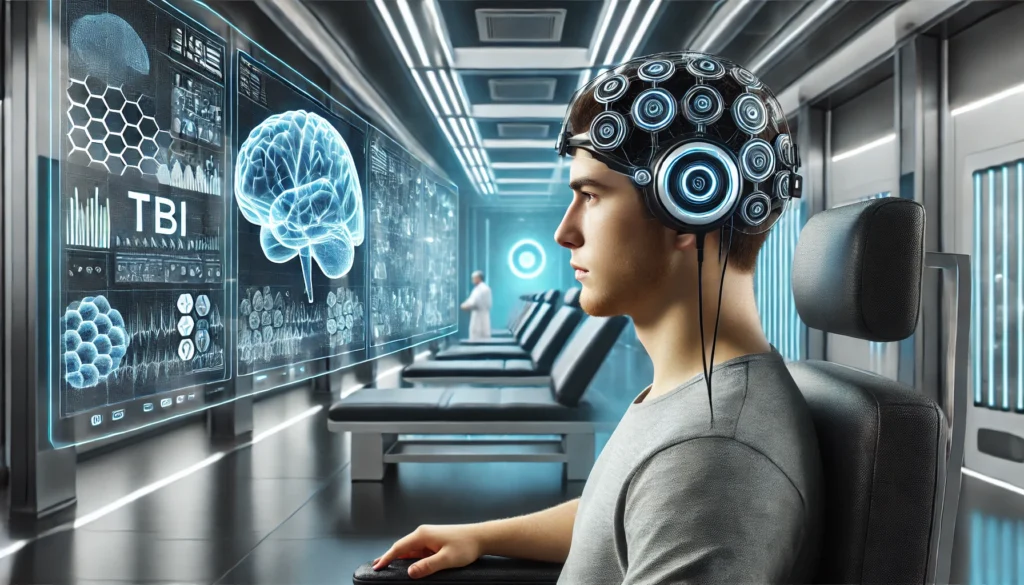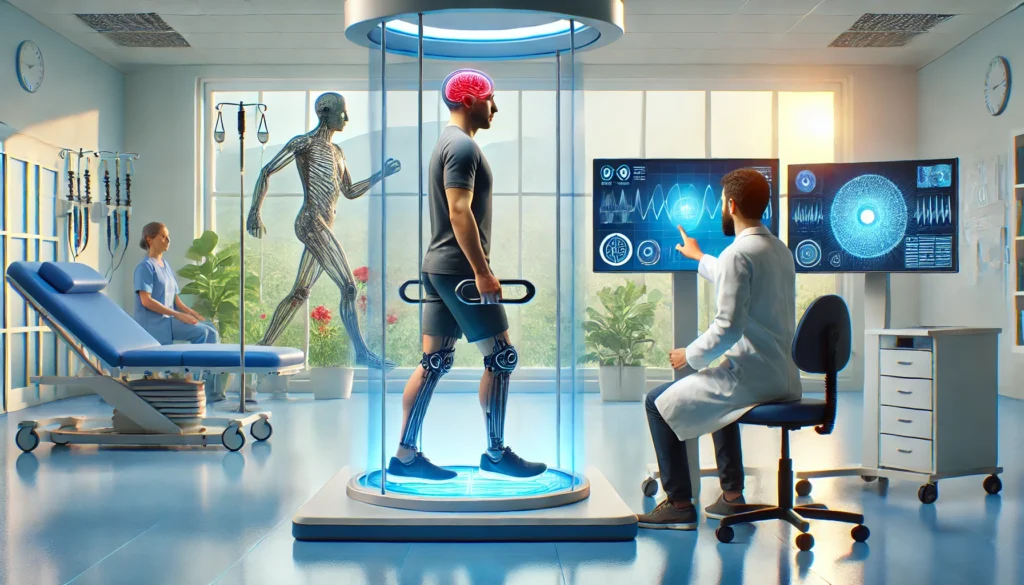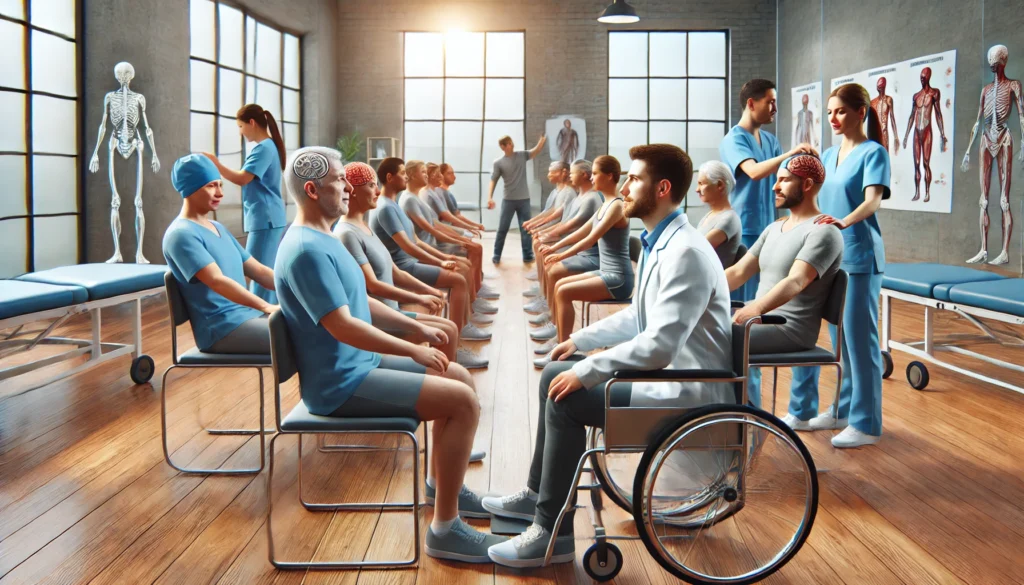Understanding Traumatic Brain Injury: What Is TBI in Medical Terms?
In the realm of neurological conditions, traumatic brain injury—commonly referred to by the acronym TBI—represents a significant and complex disruption of brain function caused by an external mechanical force. In medical terms, TBI involves an alteration in brain function, or other evidence of brain pathology, resulting from an external force. This can range from a mild concussion to severe brain damage that leaves long-lasting or permanent deficits. The medical community categorizes TBI based on severity (mild, moderate, or severe), and these categories are determined through clinical assessment, neuroimaging, and the duration of unconsciousness or altered mental states. While the term is often associated with military personnel or athletes, traumatic brain injury affects people from all walks of life—including children, the elderly, and civilians involved in falls, motor vehicle accidents, or violent assaults.
You may also like : Best Things for Brain Health: Expert-Backed Strategies to Keep Your Mind Sharp
Understanding the meaning of TBI also requires distinguishing between its primary and secondary phases. The primary injury occurs at the moment of impact, while the secondary injury unfolds over hours to days, involving biochemical cascades, inflammation, and ischemia that further damage neural tissues. TBI meaning, therefore, encapsulates not only the immediate consequences of head trauma but also the delayed processes that influence recovery and long-term brain health. What is TBI in medical terms cannot be answered without acknowledging the spectrum of physiological, cognitive, emotional, and behavioral changes that may emerge. From subtle memory lapses to severe impairments in executive function, the implications of traumatic brain injury vary widely and are shaped by factors such as the location of the injury, the force involved, and individual differences in resilience.
Common Causes and Risk Factors Associated with TBI
The mechanisms leading to traumatic brain injury are diverse, yet they tend to follow a few well-established patterns. Falls remain the most prevalent cause of TBI across all age groups, particularly among young children and older adults. These falls can occur from ladders, stairs, wet floors, or even slipping on ice—seemingly benign incidents that may lead to profound neurological consequences. Motor vehicle accidents are another leading cause, especially in adolescents and young adults, where high-speed impacts result in whiplash-like injuries or direct cranial trauma. Additionally, sports-related injuries account for a substantial number of mild TBIs, particularly concussions, which can accumulate over time to produce cumulative damage.
Violence, including domestic abuse, child maltreatment, and gunshot wounds, is a less frequently discussed but critical contributor to the TBI burden. Blast injuries, particularly in military personnel, represent a unique category wherein pressure waves disrupt brain function without necessarily causing direct impact trauma. Substance use, particularly alcohol, also significantly increases the risk of sustaining a TBI due to impaired coordination and judgment.
How Are TBIs Diagnosed? Clinical Tools and Neuroimaging Techniques
The question of how TBIs are diagnosed involves a multi-tiered approach that integrates clinical assessment, imaging technologies, and neuropsychological testing. In emergency settings, the Glasgow Coma Scale (GCS) serves as a rapid tool for evaluating consciousness by measuring eye, verbal, and motor responses. A lower GCS score indicates a more severe injury and necessitates urgent medical attention. However, diagnosing TBI goes beyond a simple score. Healthcare providers assess symptoms such as confusion, memory loss, headache, nausea, and changes in pupil size to determine the presence and severity of brain trauma.
Advanced neuroimaging techniques are indispensable in modern TBI diagnosis. Computed tomography (CT) scans are often the first-line imaging modality used in acute settings to detect skull fractures, hemorrhages, and brain swelling. Magnetic resonance imaging (MRI), on the other hand, offers superior resolution and is particularly useful for identifying diffuse axonal injury and microbleeds that may not be visible on CT. Functional MRI (fMRI) and diffusion tensor imaging (DTI) further enrich our understanding of brain network disruptions in TBI patients. Understanding how is TBI diagnosed also requires consideration of cognitive assessments, such as neuropsychological tests that evaluate attention, memory, executive function, and processing speed. These tests provide critical insight into the functional impact of the injury and help guide rehabilitation strategies.

The Role of Medication for Brain Injury: Tailoring Pharmacological Interventions
Medication for brain injury is not a one-size-fits-all solution. Instead, pharmacological interventions must be tailored to address the specific symptoms and phases of recovery in each patient. In the acute phase, medications are often aimed at reducing intracranial pressure, preventing seizures, and managing agitation or pain. Commonly used drugs include osmotic diuretics like mannitol to reduce swelling, antiepileptic medications such as levetiracetam or phenytoin to prevent post-traumatic seizures, and sedatives to minimize restlessness or aggression.
As patients transition into the subacute and chronic stages of recovery, the focus of traumatic brain injury medication shifts toward cognitive and emotional regulation. Antidepressants, particularly selective serotonin reuptake inhibitors (SSRIs), are frequently prescribed to manage post-TBI depression and anxiety. Dopaminergic agents like amantadine and bromocriptine have been used to enhance attention, motivation, and cognitive speed. Stimulants such as methylphenidate can help improve attention span and executive functioning in individuals experiencing post-TBI cognitive fatigue.
How TBI Medication Treatment Influences Brain Healing and Longevity
TBI medication treatment can play a decisive role in the trajectory of recovery and long-term brain health. Pharmacological interventions, when properly timed and selected, can mitigate secondary injury processes that contribute to chronic neurodegeneration. For instance, anti-inflammatory agents may reduce the risk of long-term gliosis and scarring, while neuroprotective compounds can safeguard vulnerable neuronal networks during the critical healing window. Emerging research on medications like progesterone and N-acetylcysteine offers hope for promoting neuroplasticity and cellular repair, although more large-scale clinical trials are needed to confirm efficacy.
Longitudinal studies have suggested that individuals receiving appropriate and timely traumatic brain injury medication may experience better functional outcomes, including improved cognitive function, mood stability, and social reintegration. Moreover, effective pharmacological management of symptoms such as insomnia, anxiety, or aggression can enhance quality of life and reduce caregiver burden—factors that indirectly support longevity. For example, managing sleep disturbances through targeted medication not only improves cognitive performance but may also reduce the risk of dementia later in life.
Recognizing the Symptoms: How to Know If You Have Brain Damage
Recognizing the signs of brain damage following a traumatic event is essential for timely intervention and effective care. While the spectrum of symptoms varies based on the severity and location of the injury, there are some common red flags that may indicate the need for immediate medical evaluation. These include persistent headaches, confusion, memory loss, difficulty concentrating, and mood swings. Sensory changes, such as blurred vision, ringing in the ears, or changes in taste and smell, are also frequently reported. Physical symptoms like dizziness, nausea, vomiting, or unsteady gait should not be dismissed, especially if they occur after a blow to the head.
The question of how to tell if you have brain damage becomes even more nuanced in the case of mild TBIs or concussions, where symptoms may be subtle or delayed. Emotional dysregulation, sleep disturbances, and difficulty performing routine tasks can all be signs of underlying brain dysfunction. In some cases, individuals may ask, “Do I have brain damage?” after experiencing what seems like a minor accident, only to later notice cognitive fatigue, irritability, or forgetfulness that interferes with daily life.
Ongoing Care and Support: How to Care for TBI Patients During Recovery
Providing effective care for TBI patients involves a multidisciplinary approach that addresses medical, cognitive, emotional, and social needs. In the acute phase, care typically centers on stabilizing vital functions, managing intracranial pressure, and preventing complications such as infections or seizures. However, as patients transition into rehabilitation and community reintegration, the scope of care expands considerably. Occupational therapists, speech-language pathologists, neuropsychologists, and social workers often become key members of the care team.
Family involvement is also critical. Caregivers must be educated on how to care for TBI patients, including managing behavioral challenges, encouraging adherence to medication regimens, and creating an environment that minimizes sensory overload. Techniques such as cognitive cueing, consistent routines, and memory aids can help individuals regain independence. Emotional support is equally important, as depression, anxiety, and frustration are common experiences during traumatic brain injury recovery.

Can Brain Injury Be Reversed? Exploring the Limits and Possibilities
The question of whether brain injury can be reversed is a complex one. While the brain possesses remarkable plasticity—the ability to reorganize itself by forming new neural connections—this capacity is not unlimited. In mild cases, such as concussions, full recovery is often possible with appropriate rest, medication, and cognitive therapy. However, in moderate to severe TBIs, the damage to neural tissue may be permanent, and the focus shifts from reversal to compensation and adaptation.
Nonetheless, emerging research into neuroregenerative medicine offers some hope for reversing certain aspects of brain injury. Stem cell therapy, neurotrophic factors, and neuromodulation techniques such as transcranial magnetic stimulation are being investigated for their potential to restore damaged neural pathways. Clinical trials examining how to reverse brain damage are ongoing, but these therapies remain experimental and are not yet part of standard practice.
Can You Recover from TBI? Hope, Rehabilitation, and Resilience
A pressing concern for patients and families alike is the question: can you recover from TBI? The answer depends on numerous factors, including the severity of the injury, the location of the brain affected, the timeliness of treatment, and the quality of rehabilitative care. Many individuals with mild TBIs recover fully within weeks to months, while those with more severe injuries may require years of intensive therapy to regain even partial function. Still, stories of remarkable recoveries underscore the resilience of the human brain and the importance of early and consistent intervention.
TBI recovery is rarely linear. Setbacks are common, and progress often occurs in unpredictable bursts. Nonetheless, therapies such as physical rehabilitation, occupational therapy, and speech-language therapy have proven effective in improving motor skills, cognitive abilities, and communication. Psychological support is equally essential, as mood disorders frequently accompany traumatic brain injury and can impede recovery if left unaddressed.
Frequently Asked Questions: Traumatic Brain Injury Recovery, Diagnosis, and Medication
1. Can emotional trauma exacerbate a traumatic brain injury, and how does that influence TBI recovery?
Yes, emotional trauma can significantly complicate traumatic brain injury recovery. While physical trauma directly affects the brain’s structure, emotional trauma—such as PTSD, grief, or chronic stress—can intensify neurological symptoms like memory lapses, irritability, and poor sleep. The brain’s recovery environment must be both physically and psychologically supportive. Mental health support, particularly trauma-informed therapy, is often overlooked in traditional models of brain injury recovery but is vital in sustaining long-term improvement. Emotional dysregulation also complicates medication for brain injury, as patients may have altered responses to psychotropic medications, further emphasizing the need for individualized treatment plans.
2. What are some emerging technologies used to improve how TBIs are diagnosed?
The evolution of diagnostics for traumatic brain injury is pushing beyond CT and MRI. Novel TBI test technologies include portable EEG devices that measure brainwave abnormalities in real time, offering rapid, on-site assessments of brain function. Additionally, machine learning models are now analyzing complex neuroimaging data to detect subtle biomarkers indicative of brain injury that human radiologists might miss. These technologies refine how TBIs are diagnosed, especially in mild cases where symptoms may be underreported or overlooked. The improved precision of these methods can dramatically change the trajectory of tbi medication treatment by ensuring early and accurate targeting of pharmacological interventions.
3. How can you tell if you have brain damage without access to a medical facility?
While professional assessment is always recommended, there are still practical ways to monitor warning signs at home. If you find yourself consistently forgetting basic information, struggling with balance, experiencing persistent headaches, or displaying sudden personality changes, these may be signs of underlying brain damage. Close friends or family members can often spot these changes before the individual notices them, making their input essential in answering the question, “How can you tell if you have brain damage?” Journaling symptoms over several days can also help track cognitive patterns, which can be brought to a medical provider during a follow-up. While not a substitute for a TBI test, these strategies provide a proactive approach when asking, “Do I have brain damage?”
4. Are you well if you have persistent symptoms after a TBI, or do they signal long-term brain damage?
Persistent symptoms following a traumatic brain injury, such as dizziness, cognitive fog, or mood instability, may suggest more than a typical recovery phase. While some fluctuations are part of normal healing, symptoms that persist beyond six months could point to lasting neurological disruption. When someone wonders, “Are you well, or do you have brain damage?” the answer often lies in functional capacity—if daily tasks remain consistently impaired, further investigation is warranted. Chronic symptoms may necessitate adjustments in tbi medication treatment to better support brain plasticity and reduce inflammation. Ongoing monitoring and neurocognitive reassessments play a crucial role in determining whether the brain is healing or whether long-term support is needed.
5. What does brain damage feel like in real-time for the person experiencing it?
The lived experience of brain damage is often described as surreal or disorienting. Individuals report feeling detached from reality, struggling to follow conversations, or being overwhelmed by minor stimuli like bright lights or background noise. These perceptual distortions underscore the complexity of understanding what brain damage feels like—it’s not simply a loss of function but a reshaping of how the brain processes everyday experiences. TBI recovery requires an awareness of these sensory and emotional subtleties, which aren’t always visible on standard tests. This is why medicine for traumatic brain injury should be complemented with therapies focused on reorienting sensory integration and emotional resilience.
6. How do social relationships influence recovery from brain damage?
Social support is often an underestimated component of recovery from brain damage. Patients with strong interpersonal connections tend to engage more fully in rehab programs and respond more positively to medication for brain injury. These relationships can act as a buffer against the isolation and depression commonly associated with TBI recovery. Support networks also help patients navigate logistical hurdles, like managing meds for TBI or scheduling therapy appointments. Thus, the presence of a committed caregiver or a supportive community can drastically improve brain trauma recovery outcomes.
7. Can digital therapeutics be used alongside traumatic brain injury medication for better outcomes?
Absolutely. Digital therapeutics—such as cognitive training apps, virtual reality rehabilitation, and wearable biofeedback devices—are increasingly integrated into brain injury recovery protocols. These tools reinforce neural pathways through repetition and targeted stimulation, making them an ideal supplement to traditional medicine for traumatic brain injury. They also allow clinicians to monitor progress in real time and adjust tbi medication treatment plans based on objective performance data. By combining pharmacology with technology, clinicians can develop a personalized, adaptive strategy that supports both physical and cognitive aspects of healing.
8. What are some lesser-known signs that someone may be recovering from brain damage?
While improved memory and concentration are often seen as benchmarks of TBI recovery, subtler signs can be equally important. Increased emotional awareness, greater frustration tolerance, and the return of creative or spontaneous thinking are often overlooked markers of healing. These improvements reflect deep neurobiological changes, not always visible on imaging scans or measured in standard tbi tests. Recovering from brain damage isn’t just about cognitive metrics; it’s about re-engaging with life meaningfully. As patients regain a sense of self and emotional balance, it becomes clearer that their brain, though once broken, is moving toward restoration.
9. How do patients typically respond when they learn their TBI symptoms may be permanent?
This is often a pivotal moment in traumatic brain injury recovery. Emotional reactions vary from despair to determination, and psychological support becomes essential at this stage. Some individuals struggle with identity shifts, especially when their professional or academic lives are disrupted. Others channel their experience into advocacy or mentoring roles, reframing their journey through a lens of purpose. With the right support system, even those facing lasting impairments can achieve a meaningful recovery from brain damage—highlighting that while brain injuries may not always heal completely, lives can still be rebuilt with dignity and direction.
10. What are the most common mistakes people make when managing tbi medication treatment at home?
One of the most frequent missteps is inconsistency—missing doses or stopping medications prematurely when symptoms improve. Another issue arises when patients adjust their meds for TBI without consulting their doctor, unaware that even minor changes can disrupt neurological balance. Some individuals rely solely on pharmacological solutions, neglecting the holistic components of recovery such as sleep, nutrition, and cognitive engagement. Effective traumatic brain injury medication management requires a systems-based approach that integrates lifestyle, behavioral therapies, and regular communication with healthcare providers. Understanding how to care for TBI patients at home includes recognizing the importance of precision and consistency in all aspects of their treatment plan.

Conclusion: Traumatic Brain Injury Recovery and the Future of Brain Health
Traumatic brain injury recovery is an intricate process that encompasses medical treatment, rehabilitation, and long-term support. From understanding how TBIs are diagnosed using advanced imaging and cognitive assessments to selecting the right traumatic brain injury medication, each decision plays a critical role in shaping recovery trajectories. TBI medication treatment can profoundly impact not only immediate symptom relief but also long-term brain health and cognitive function, offering a path toward improved longevity and quality of life.
The journey of recovering from brain damage is rarely straightforward. Still, with the right combination of medical care, emotional support, and resilience, many individuals can reclaim independence and purpose. For those wondering, “Do I have brain damage?” or “How can you tell if you have brain damage?”—the answers lie in early diagnosis, vigilant monitoring, and evidence-based interventions. And while the question of whether brain injury can be reversed remains a matter of ongoing research, what is clear is that brain trauma recovery is possible and, in many cases, transformative.
head injury treatment options, cognitive rehabilitation therapy, brain inflammation after injury, post-concussion syndrome management, neurological recovery strategies, long-term effects of head trauma, cerebral trauma care, brain function rehabilitation, neuroplasticity after injury, neurological health restoration, concussion recovery timeline, personalized brain injury care, post-traumatic cognitive dysfunction, chronic traumatic encephalopathy risk, supportive care for brain trauma, neurological resilience training, brain healing supplements, integrative neurorehabilitation, advanced brain diagnostics, emotional recovery after TBI
Further Reading:
Treatment and Rehabilitation for Traumatic Brain Injury: Current Update
Scales and Outcome Measures in Brain Injury Patients
Physical and mental health after traumatic brain injury
Disclaimer
The information contained in this article is provided for general informational purposes only and is not intended to serve as medical, legal, or professional advice. While Health11News strives to present accurate, up-to-date, and reliable content, no warranty or guarantee, expressed or implied, is made regarding the completeness, accuracy, or adequacy of the information provided. Readers are strongly advised to seek the guidance of a qualified healthcare provider or other relevant professionals before acting on any information contained in this article. Health11News, its authors, editors, and contributors expressly disclaim any liability for any damages, losses, or consequences arising directly or indirectly from the use, interpretation, or reliance on any information presented herein. The views and opinions expressed in this article are those of the author(s) and do not necessarily reflect the official policies or positions of Health11News


